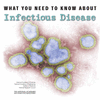The research concerning what foods to eat and how much is not new. So why are Americans still indulging in unhealthy habits? What can be done to help the general public understand and act on the findings of researchers and nutritionists?
We’ve put together a collection of free resources to address these questions.
Free PDFs
 School Meals: Building Blocks for Healthy Children
School Meals: Building Blocks for Healthy Children Ensuring that the food provided to children in schools is consistent with current dietary recommendations is an important national focus. Various laws and regulations govern the operation of school meal programs. In 1995, Nutrition Standards and Meal Requirements were put…

 Local Government Actions to Prevent Childhood Obesity
Local Government Actions to Prevent Childhood Obesity The prevalence of childhood obesity is so high in the United States that it may reduce the life expectancy of today’s generation of children. While parents and other adult caregivers play a fundamental role in teaching children about healthy behaviors…

 Childhood Obesity Prevention in Texas: Workshop Summary Childhood Obesity Prevention in Texas
Childhood Obesity Prevention in Texas: Workshop Summary Childhood Obesity Prevention in Texas summarizes the information gathered at a workshop held February 5-6, 2009, in Austin, Texas. At this workshop, committee members met with Texas lawmakers, public officials, and community leaders to exchange ideas and to view first-hand…

 Weight Gain During Pregnancy: Reexamining the Guidelines
Weight Gain During Pregnancy: Reexamining the Guidelines As women of childbearing age have become heavier, the trade-off between maternal and child health created by variation in gestational weight gain has become more difficult to reconcile.
Weight Gain During Pregnancy responds to the need for a reexamination of…

 The Public Health Effects of Food Deserts: Workshop Summary
The Public Health Effects of Food Deserts: Workshop Summary In the United States, people living in low-income neighborhoods frequently do not have access to affordable healthy food venues, such as supermarkets. Instead, those living in “food deserts” must rely on convenience stores and small neighborhood stores that offer few…

Free Video
Public Policy in Nutrition: Where Does Science Fit in? Discover the science behind public policy in nutrition from the Dietary Reference Intakes (DRIs) to the Dietary Guidelines to green “smart” checkmarks and health claims on food packaging. How science-based are the recommendations and who makes the decisions?
Presenter: Joanne Lupton (IOM), Texas A&M University
Test Your Tongue: The Science of Taste A leading expert in taste and a popular food writer look at our understanding of the science of taste and the chemical underpinnings of flavors and foods. Learn about your own tastebuds by sampling miracle fruit, artichokes, fruit strips, and more!
Presenters: Linda Bartoshuk, University of Florida and Harold McGee, New York Times
Elixir of Life: Wine and Health
Wine grapes are one of the major human food crops, and there is now overwhelming evidence that drinking wine in moderation is beneficial to human health. But why did only one particular species of Vitis become used for wine-making — out of more than 30 existing species? The DNA sequence of a Pinot Noir variety of Vitis vinifera was published in 2007 and a comparison with other varieties is under way. Will we soon be drinking genetically-engineered “designer” wines?
Presenter: Francisco Ayala, University of California, Irvine
The Future of Chocolate on Earth
Explore the science of chocolate, from the role of cocoa in protecting tropical rainforests, to its surprising potential to improve cardiovascular health. Learn how food technology manipulates cocoa to create the sensory experience of some of your favorite chocolate brands during a tasting at the dessert reception.
Presenter: Harold Schmitz
Free Audio
School Meals: Building Blocks for Healthy Children[audio:http://feedproxy.google.com/~r/podcasts/soundsofscience/~3/4yQ3ENSpzTY/nax96schoolmeals.mp3]Download This Episode
This podcast provides a historical overview of the emergence of school meal programs and provides recommendations to update the nutrition standard and the meal requirements for the National School Lunch Program and School Breakfast Program. The recommendations reflect new developments in nutrition science, increase the availability of key food groups in the school meal programs, and allow these programs to better meet the nutritional needs of children, foster healthy eating habits, and safeguard children’s health. Visit the IOM report page.
Weight Gain During Pregnancy: How Much is Too Much?[audio:http://feedproxy.google.com/~r/podcasts/soundsofscience/~3/TgH1FO2EmTs/nax90weightgain.mp3]Download This Episode
As women of childbearing age have become heavier, the trade-off between maternal and child health created by variation in gestational weight gain has become more difficult to reconcile. The Weight Gain During Pregnancy podcast looks at some of the key findings and recommendations from the Institute of Medicine report. Visit the IOM report page.
A Salmon A Day: Balancing the Benefits and Risks of Seafood[audio:http://feedproxy.google.com/~r/podcasts/soundsofscience/~3/TtqdJ5LRrNU/nax23seafoodcho.mp3]Download This Episode
The fragmented information that consumers receive about the nutritional value and health risks associated with fish and shellfish can result in confusion or misperceptions about these food sources. This episode looks at the available research and provides listeners with tips and guidelines when choosing seafood. Read the report online and visit the IOM report page.










































































































